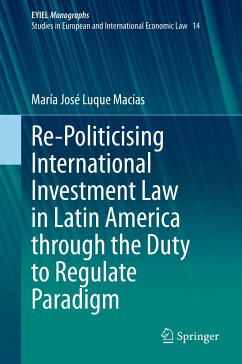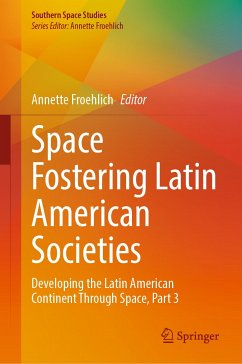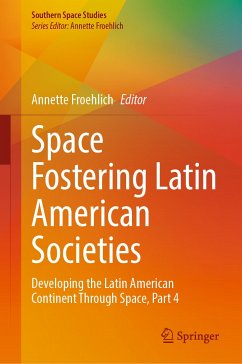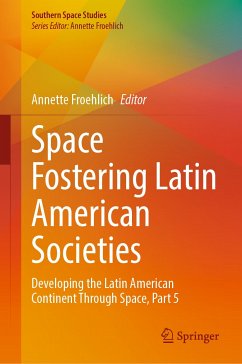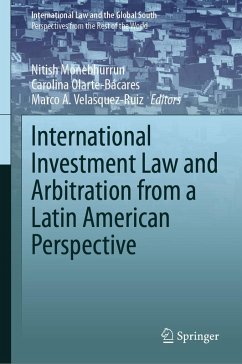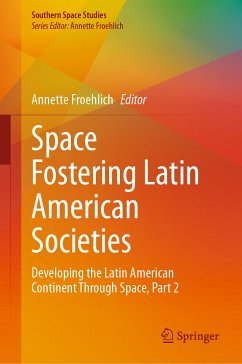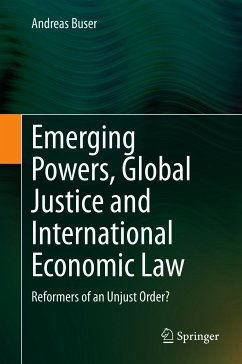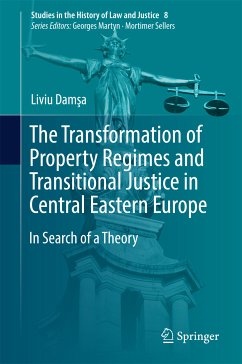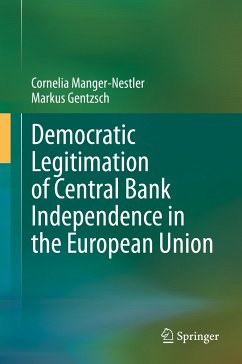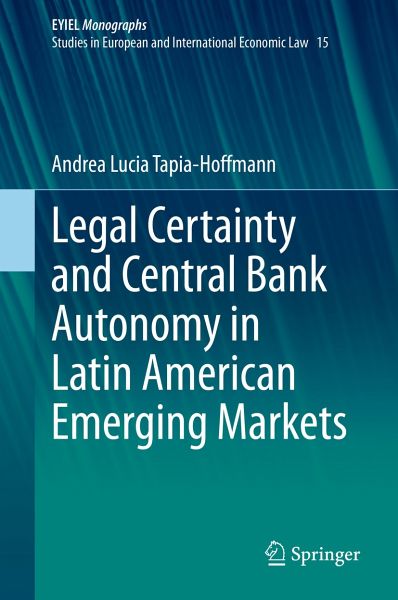
Legal Certainty and Central Bank Autonomy in Latin American Emerging Markets (eBook, PDF)
Versandkostenfrei!
Sofort per Download lieferbar
Statt: 171,19 €**
120,95 €
inkl. MwSt.
**Preis der gedruckten Ausgabe (Gebundenes Buch)
Alle Infos zum eBook verschenkenWeitere Ausgaben:

PAYBACK Punkte
60 °P sammeln!
This book provides a comparative analysis of the legal frameworks of six Latin American central banks to determine whether there is legal certainty regarding central bank autonomy. Based on this, it ascertains whether the way in which legal institutions are designed - specifically those that rule the autonomy of the central bank - provides reasons to believe that central banks can keep inflation at bay even if governments face fiscal problems or pursue contradictory objectives. The analysis covers three key areas: a constitutional analysis, a detailed study of the central bank statutes and a s...
This book provides a comparative analysis of the legal frameworks of six Latin American central banks to determine whether there is legal certainty regarding central bank autonomy. Based on this, it ascertains whether the way in which legal institutions are designed - specifically those that rule the autonomy of the central bank - provides reasons to believe that central banks can keep inflation at bay even if governments face fiscal problems or pursue contradictory objectives.
The analysis covers three key areas: a constitutional analysis, a detailed study of the central bank statutes and a study of a number of underexplored threats to central bank autonomy.
After defining and identifying different types of legal certainty and linking them to the credibility of government promises, the author goes on to examine the grounds that the law provides for confidence that central banks operate independently of political influence. The secondpart of the book focuses on a granular analysis of the legal design of the central banks' objectives and autonomy. Lastly, the third part features two case studies that represent little-known and unusual institutional threats to legal certainty relating to central bank autonomy, such as the interventions by the Constitutional Court of Colombia in the autonomy of the Colombian central bank, and the interventions of the Argentinean executive and legislative branches in the autonomy of Argentina's central bank through stabilization plans introduced via emergency laws and decrees.
In sum, the book suggests that there are serious doubts about the ability of Latin American central banks to maintain price stability over time. Although central banks were granted a degree of autonomy, authorities in Latin American countries are able to affect central bank decisions. Most importantly, a lack of clarity, inconsistencies, or generous exceptions in the law provide ways for authorities to influence central banks even without bending or disregarding the rules.
Dieser Download kann aus rechtlichen Gründen nur mit Rechnungsadresse in A, B, BG, CY, CZ, D, DK, EW, E, FIN, F, GR, HR, H, IRL, I, LT, L, LR, M, NL, PL, P, R, S, SLO, SK ausgeliefert werden.
Alle Preise in Euro und inkl. der gesetzl. MwSt. | Innerhalb Deutschlands liefern wir preisgebundene Bücher versandkostenfrei. Weitere Informationen: bitte hier klicken
Support
Bitte wähle dein Anliegen aus:
Rechnungen
Bestellstatus
Retourenschein
Storno



